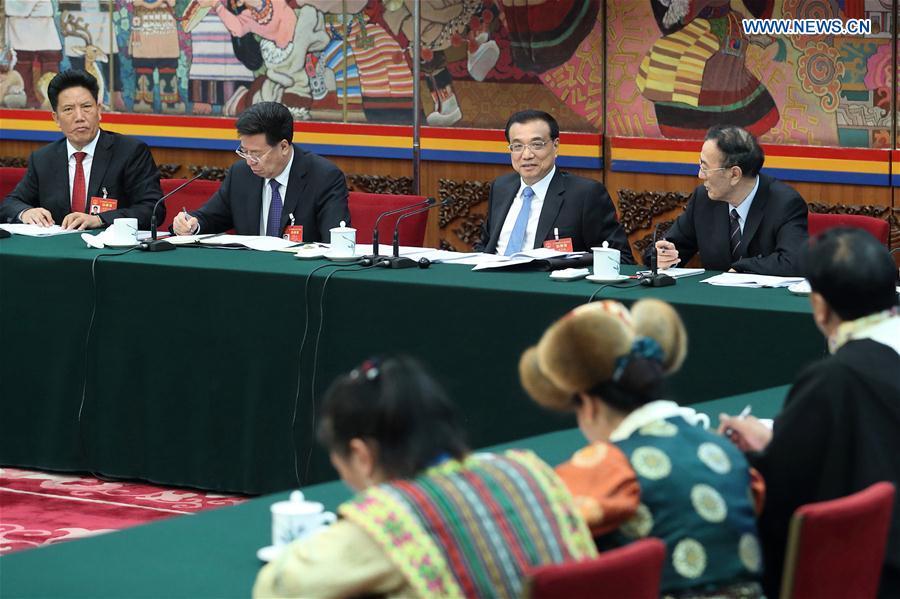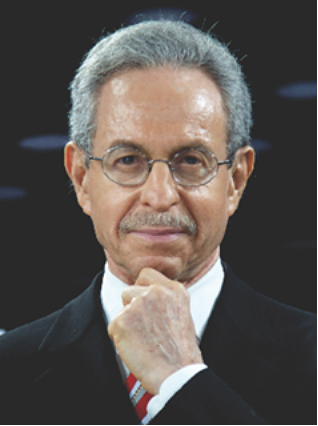Full coverage: 2017 NPC & CPPCC Sessions
By Robert Lawrence Kuhn, a public intellectual, political/economics commentator, and international corporate strategist.
I have been coming to China regularly for soon approaching 30 years and I've been reflecting why attending and providing commentary for this year's Two Sessions has become one of my most memorable experiences. I suppose it is a combination of three factors: an axial time of critical economic reform and social transformation in China; the increasing recognition in the world of China's central importance; and my personal cumulative experience in witnessing China's grand and historic project of national rejuvenation and the pleasure of meeting many old friends who are participants.
I am pleased to be covering China’s annual political meetings - the National People's Congress (NPC), China's top legislative body, and the Chinese People's Political Consultative Conference (CPPCC), China’s top advisory body - for my weekly show on CGTN, "Closer To China with R.L.Kuhn". The meetings together are called “LiangHui” (兩會) or "Two Sessions", and covering them fits Closer To China’s mission in telling China's rich, complex story through intimate, informed discussions with China's thought leaders and decision makers - many of whom do not appear in foreign media. We deal with sophisticated and sensitive issues that China faces, domestic and international.
 Chinese Premier Li Keqiang joins a panel discussion with deputies to the 12th National People's Congress (NPC) from Tibet Autonomous Region at the annual session of the NPC in Beijing, capital of China, March 7, 2017. (Xinhua/Wang Ye)
Chinese Premier Li Keqiang joins a panel discussion with deputies to the 12th National People's Congress (NPC) from Tibet Autonomous Region at the annual session of the NPC in Beijing, capital of China, March 7, 2017. (Xinhua/Wang Ye)
The CPPCC starts two days before the NPC and Is unique to the Chinese political system, where one party, the Communist Party of China, the CPC, is the perpetually ruling party. The CPPCC role is three-fold: offer political consultation, participate in decision making, and provide democratic supervision - each with its own special meaning in the context of China's political system - and the CPPCC carries out these three responsibilities reflecting broad sectors of society. The claim is made that the CPPCC enables "multi-party cooperation" with those eight, small, so-called Democratic parties, but, in reality, their impact is, well, modest.
More significantly, the CPPCC acts as a think tank for the government, the legislative and the judiciary. Members put forward proposals on major political and social issues. But the CPPCC has no legal authority, so how can it fulfill its responsibilities?
The key is that members assert power through expertise. Members are among the leaders in their sectors, among the most sophisticated thinkers in their fields. The CPPCC has the responsibility and the authority - and the resources - to conduct extensive research, drawing on the expertise and experience of its highly professional members. Research areas cover the country, from fighting poverty through improved education to fighting pollution through improved technologies.
The sequence of activities is that the CPPCC conducts research and provides "consultations" - advice and counsel - before policy decisions are made. In contrast, the NPC, China's top legislative body, votes on policy decisions after the consultations are completed. Consultations provided by CPPCC members cover major principles and policies proposed by the central and local governments. They also cover matters of importance in political, economic, cultural and social affairs.
Here in Beijing, speaking to delegates, officials and leaders, I sense anticipation, excitement, and perhaps a touch of anxiety.
Listening to Premier Li Keqiang give the annual "Report on the Work of the Government" to the almost 3000 delegates of the National People's Congress (NPC) assembled in the Great Hall of the People in Tiananmen Square, is to be encompassed by the civilization-state pageantry of China state power and the sheer magnitude of managing this huge country. One's instant impression is that to understand China one must comprehend the country as a whole, integrating political, social, cultural and ecological sectors with economic matters. In fact, to focus only on the economy – which is what most foreign media do – is to distort the lens with which to view China.
China watchers will scrutinize everything going on here – official speeches, press conferences, policy announcements, sideline comments, personnel positioning or actions. How is the economy tracking? What's with the priority programs? Anything with the anti-corruption campaign (which is never far out of mind)? Any surprises? New policies? Can we spot signals? What’s "in the air"?
To the untrained ear, the structure and phrases of formal statements and speeches may sound similar, even identical, to those of previous years. But, listen closely and you will hear small but revelatory differences that one learns to discern. We sift for nuances as if for gems, seeking subtle novelties with explanatory power.
China's ruling party, the Communist Party of China (CPC), prides itself on careful, incremental change, and usually this is the case. But occasionally we find sharper breaks with past practices and it is those moments for which we are especially on watch.
Personally, I’m watching five individual areas: commitment to economic reform, indications of political reform, intensity of social concerns, moves with respect to senior personnel, and relative importance of international affairs.
Collectively, I'm also assessing the extent to which President Xi Jinping's policies and programs are consolidating and being supported by China's vast bureaucracy, within which there are often different and sometimes hidden agendas.
The overarching importance of President Xi's emergence as China's pre-eminent leader is that it signals that there is political stability in China and that the 19th CPC National Congress should play out according to expectations. This would mean that following the CPC National Congress, China can focus on the hard tasks of continuing reform with renewed leadership, commitment and energy under the leadership, as they say, of the CPC Central Committee with General Secretary Xi Jinping as its "core".
"Core" (核心) is the monumental word of elite politics in China. In perhaps the most significant political event of 2016, it was at the 6th Plenum of the 18th CPC National Congress in October that Xi's "core" position was formally affirmed.

Robert Lawrence Kuhn, a public intellectual, political/economics commentator, and international corporate strategist. He is the host of Closer To China with R.L. Kuhn on China Global Television Network (CGTN), produced by Adam Zhu.
(The opinions expressed here do not necessarily reflect the opinions of Panview or CCTV.com)

Panview offers a new window of understanding the world as well as China through the views, opinions, and analysis of experts. We also welcome outside submissions, so feel free to send in your own editorials to "globalopinion@vip.cntv.cn" for consideration.















